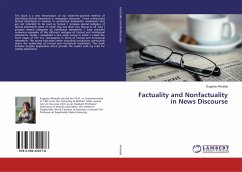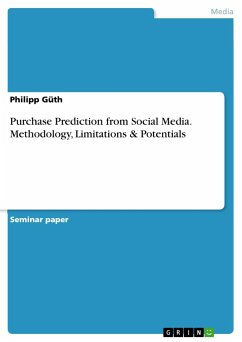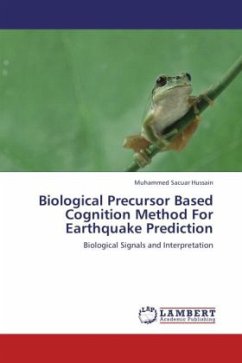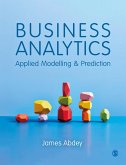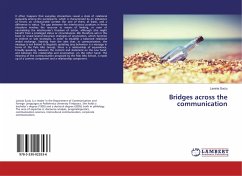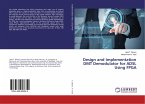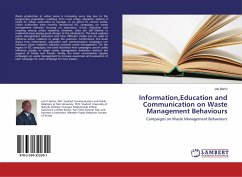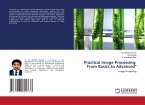This book is a new theorization of our taken-for-granted method of identifying factual statements in newspaper discourse. I have re-theorized factual statements in relation to nonfactual statements, statements that are not intended to be read as factual. I propose several subtypes of factual statements some of which may not seem very factual at all. And I propose several categories of nonfactual statements. I have provided numerous examples of the different subtypes of factual and nonfactual statements. Finally, I completed a two week survey in which I coded the front pages of five U.S. newspapers in terms of factual and nonfactual statements. The survey had some rather surprising conclusions, particularly about the authorship of factual and nonfactual statements. The book includes lengthy appendices which provide the reader with my rules for coding statements.
Bitte wählen Sie Ihr Anliegen aus.
Rechnungen
Retourenschein anfordern
Bestellstatus
Storno

